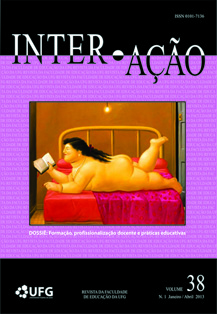NUESTROS MUERTOS, VUESTRA GUERRA: O DISCURSO E O SILENCIAMENTO DO DIZER NOS ATENTADOS TERRORISTAS DA ESPANHA EM 2004
DOI:
https://doi.org/10.5216/ia.v38i1.16079Keywords:
Análise do discurso, Silenciamento, Interdiscurso, Terrorismo, Espanha.Abstract
Tendo por base a análise do discurso de matriz francesa (AD), este artigo tem por objetivo investigar os discursos populares acerca dos atentados terroristas ocorridos em Madrid, Espanha, no ano de 2004. A análise do enunciado “Nuestros muertos, vuestra guerra” (Nossos mortos; vossa guerra), escrita em algumas faixas em manifestações da época, revelou que não há um sentido único para a mesma, destacando a necessidade de olharmos para o contexto de enunciação e para a história de produção dos sentidos, que não se remete apenas aos atentados de 2004, mas a outros eventos históricos do país (separatismo e grupos de conflito) e também do contexto mundial, como os atentados da Al Qaeda aos EUA em 2001.Downloads
Downloads
Published
How to Cite
Issue
Section
License
Inter-Ação uses the Creative Commons Attribution 4.0 License for Open Access Journals (Open Archives Initiative - OAI) as the basis for the transfer of rights. Open access means making documents available on the Internet free of charge, so that users can read, download, copy, distribute, print, search, or link to the full text of documents, process them for indexing, use them as input data for software programs, or use them for any other lawful purpose, without financial, legal, or technical barriers.
Authors publishing in this journal agree to the following conditions:
1) Authors retain copyright and grant the journal the right of first publication, with the work simultaneously licensed under the Creative Commons Attribution License, which permits redistribution of the work with attribution and first publication in this journal.
2) Authors are permitted to enter into additional, separate agreements for non-exclusive distribution of the version of the work published in this journal (e.g., for publication in an institutional repository or as a book chapter), with attribution and first publication in this journal.
3) Authors are permitted and encouraged to publish and distribute their work online (e.g. in institutional repositories or on their home page) at any time before or during the editorial process, as this may generate productive changes as well as increase the impact and citation of the published work.















